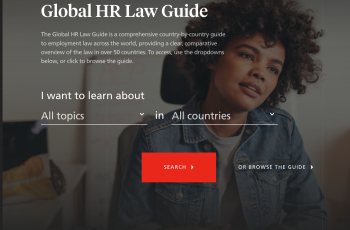
In 2014, the Protected Disclosures Act 2014 (the 2014 Act) was introduced to protect whistleblowers from dismissal or penalisation. In 2019, the EU Whistleblower Directive was published (see here for detail on its implementation status across the EU).
The Protected Disclosures (Amendment) Act (the 2022 Act), which was recently signed into law, introduces the changes needed to align Irish law with the Directive. It is not yet in effect but the final steps to implement it are expected now that the Irish parliament, the Dáil, has resumed sitting after the summer recess. This article outlines in brief some of the key changes; for a full guide to the new rules, see here.
The 2022 Act extends protection beyond the previously covered categories of employees, consultants, contractors, agency workers and individuals on work experience. It now also covers shareholders, volunteers, members of the administrative, management or supervisory body of an undertaking (e.g., non-executive directors) and applicants for employment.
The 2014 Act included a long list of matters about which a whistleblower could make a report and receive protection (‘protected disclosure’). These include suspicion of a criminal offence, a miscarriage of justice, risk to health and safety, damage to the environment and financial misconduct in a public body, among others.
The 2022 Act makes reporting on potential breaches of EU law a protected disclosure, including (but not limited to) public procurement, financial services, prevention of money laundering and terrorist financing, product safety and compliance, consumer protection, protection of privacy and personal data. It also includes acts or omissions affecting the EU’s financial interests and the internal market.
There is no need for a public interest element, and the recent Supreme Court decision in Baranya v Rosaderra Irish Meats Group Limited widened the door for employee grievances to be considered protected disclosures in certain circumstances (the case held that complaints about the employee’s own health or safety could be a protected disclosure).
However, the 2022 Act excludes grievances about interpersonal conflicts and complaints to, or about, an employee’s employer which concern the worker exclusively. This means individual complaints of bullying or harassment between two workers would likely not amount to a protected disclosure.
Yes, a worker can report wrongdoing anonymously. However the 2022 Act provides that an employer will not be obliged to accept and follow-up on anonymous reports (in certain sectors, however, there may be legislation which requires employers to act on anonymous reports). Where a worker’s identity subsequently becomes known, the protection against penalisation will extend to them.
Under the 2022 Act private sector employers with more than 50 employees must have internal reporting channels and procedures for whistleblowing and for follow-up on complaints. Employers with between 50-249 employees have until 17 December 2023 to put these measures in place.
Some employers such as public bodies are already required to have whistleblowing procedures in place regardless of the number of employees.
The 2022 Act gives details of what the internal channels and procedures should include, and timelines for dealing with a protected disclosure. This includes information on the methods of reporting, the deadline for responding to reports and providing feedback to whistleblowers.
Whistleblowers are protected from penalisation. Penalisation is defined in the 2014 Act as any act or omission that affects a worker to their detriment, and includes:
The 2022 Act significantly broadens this list, to include any direct or indirect act or omission that occurs in a work-related context that causes or may cause unjustified detriment to a worker. This includes (in addition to the above):
Penalisation can entitle a whistleblower to compensation of up to five years’ remuneration. The 2022 Act provides for compensation of a maximum of EUR 15,000 for a worker who is not paid by the employer (such as a volunteer or job applicant).
The burden of proof has changed. In any Workplace Relations Commission proceedings where the employee is claiming penalisation for whistleblowing, there is a presumption that the penalisation was as a result of the report. The burden is on the employer to demonstrate that there was a different reason for what it did (or did not do).
In addition, the 2022 Act creates new offences for employers, including where an employer:
It is also an offence for a person to make a protected disclosure containing any information they know to be false.
Fines range from EUR 5,000 and/or imprisonment for up to 12 months on summary conviction, up to EUR 250,000 and/or imprisonment for up to two years for conviction on indictment.
Employers should review and update their whistleblowing procedures to comply with the 2022 Act. They should also ensure that managers are familiar with Irish whistleblowing law generally and these changes in particular.
For a full guide to the new whistleblowing rules, see here.
The Protected Disclosures (Amendment) Act 2022 is available here.
#whistleblower #EU #workplaceinvestigations #dismissal #Ireland
For more information about Investigations & Performance Management



